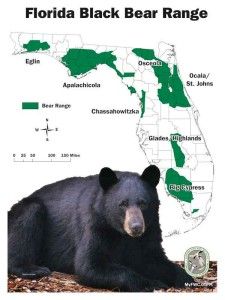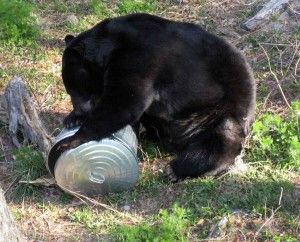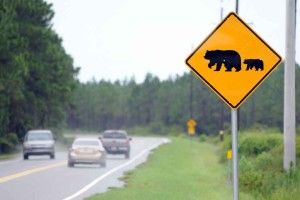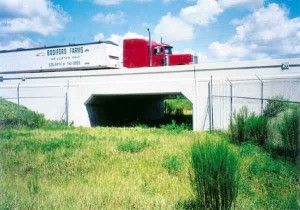

The decision to change the conservation status of the Florida black bear was based on the results of FWC’s 2011 Biological Status Review, which confirmed successful conservation efforts of the Florida black bear. According to the review, black bear population in Florida once numbered at just 300 bears in the 1970s, has increased to a current population of over 3,000 bears.
Although the bear population has recovered significantly, many worried a change in conservation status could endanger the bear population in the future.
Biologists and conservationists were concerned that many of the special conservation laws that have helped to successfully build the black bear population over the years would no longer be effective and Florida black bear numbers could begin to plummet. Animal rights advocates disagreed with the decision for similar reasons, stating that the removal of the black bear from the endangered list was happening too soon and would damage black bear populations.

Rising bear numbers and continued depletion of the forests and swamps in which they reside due to development has pushed the bear into the public. As the bear population continues to rise, the frequency of public interactions with the Florida black bear will increase as well. Currently over 100 bears die on roadways each year, and reports of bears in backyards and towns have more than doubled.

“The best thing that Florida can do to protect bears is to conserve the lands where they roam with a wildlife corridor running the length of the state, and limit there interactions with cars by constructing highway underpasses.” - Commissioner Rob Bergeron of Weston, as reported by The Miami Herald.
“We have bears where we have never had bears before,” said Mike Orlando, a bear coordinator with the FWC, in an interview with the Tampa Bay Times. Orlando was commenting on a recent bear capture on Busch Boulevard near the University of Florida in Tampa. The same bear was captured on Sanibel Island last year after fleeing from Big Cypress National Preserve in southwest Florida.

Commission Chair Kathy Barco warns Floridians that as bear populations rise so will bear-people interactions. People need to adapt to this change.
“This is a success story. But there’s a huge disconnect: People want bears, but not in their yard. ‘Why do I have to change the way I live?’ At some point, you have to learn to live with these guys.” said Barco, as quoted by the Miami Herald.
Despite arguments from skeptics – the decision has been made. Now it is up to the people and government of Florida to protect the black bear, and prove they made the right decision.
More:
A local Florida news report (WPTV): Florida black bear removed from threatened list
Photos courtsey of Florida Fish and Wildlife Service, The Florida Fish and Wildlife Conservation Commission, and U.S. Dept. of Transportation.